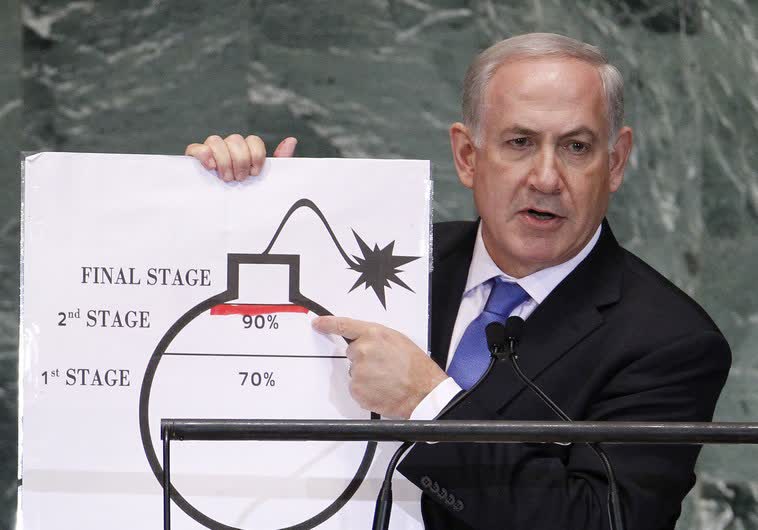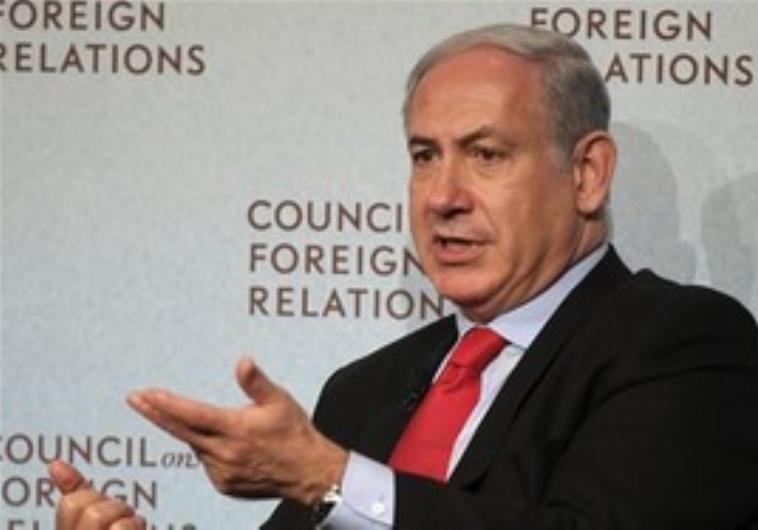All of the Palestinian prisoners in Israel for all of the hostages. Will our leaders be willing to pay that awful price?
Someone needs to speak the truth. From day one of this horrible war, I have said privately and publicly that the only way to bring all of the hostages home alive is through a deal with Hamas that would be “all for all” – all of the Palestinian prisoners in Israel for all of the hostages. Now we are at Day 100 (hard to believe) and 136 hostages are still in captivity in Gaza.
After the horrific carnage and destruction that we have seen in Israel and in Gaza, the “all for all” deal between Israel and Hamas that Hamas presented at the beginning of the war now has additional demands. Hamas now also demands an end to the war and an Israeli withdrawal to the international border. Without this package, there is no deal. From my 17 years experience of negotiating with Hamas, and from what I have heard from officials in Qatar, Egypt and Hamas – that is the deal. Only now, of the 136 hostages on Israel’s list, it is believed that at least 20 of them are not alive (including Oron Shaul and Hadar Goldin killed in 2014). We don’t know how many of them will survive until they are released. Every day that they are in captivity is a risk to their lives.
There are those among the most senior officials in Israel who believe that if Israel finds the top Hamas leaders and kills them (the Sinwar brothers, Mohammed Deif, Marwan Issa, and maybe some others) all of the hostages will be freed. Many others, myself included, assume that these Hamas leaders have placed the hostages between themselves and any Israeli soldiers who might find their underground bunker command center. A gun battle would surely put those hostages directly in harm’s way. I don’t believe that the killing of the top leaders of Hamas would bring about an automatic release of the hostages. There are still possibilities that search and rescue operations may be successful and there is no doubt that for Israel, that would be the very best scenario. But so far, search and rescue operations have brought one hostage home alive.
There is no victory for Israel in this war if the hostages are not brought home safely. Too many of them have already been killed. We have no idea how many of them are still alive. In my opinion, the most important priority for Israel in this war is to bring the hostages home. It is Israel’s moral responsibility to do so. The second priority of ensuring that Hamas can never rule Gaza or possess the military capacity to threaten Israel can wait. The hostages cannot wait.
So much of what the hostages’ families are being told and what the Israeli officials tell the public brings me back to the more than five years that Gilad Schalit was in captivity in Gaza. “We are doing everything possible, leaving no stone unturned.” “We have hundreds of people working 24/7 to bring the hostages home.” Whether this is true or not, we are now 100 days after they have been taken by force from their homes, bases, and from the music festival after Israel failed to protect them. It seems to me that the objective of taking down Hamas has become the primary goal of the war, perhaps because the price that Hamas is demanding is beyond what the Israeli government is willing to pay. If this is true, the clearest conclusion is that Israel has decided not to negotiate, or to prolong negotiations as long as possible, and to depend solely on military options to bring them home.
There is no doubt that the price that Hamas demands is enormous and even dangerous. Israel holds an estimated 8,000 Palestinian prisoners. Of these, 559 are serving life sentences for killing Israelis. Another 130 are Hamas terrorists who were captured inside of Israel on October 7. Additionally, hundreds of Hamas fighters have been captured in Gaza and brought into Israel. Israel arrests tens of Palestinians in the West Bank every week.
In some preliminary discussions between security officials and experts, there have been hypothetical debates on where and how would be best to release these prisoners if such a deal would be made. Some would like to expel from the area those considered to be the most dangerous including those responsible for killing hundreds of Israelis. Some say we should send them all to Gaza, where they would most likely join the ranks of Hamas to continue fighting against Israel. My own view is that they should be sent to the West Bank where Israel has a better ability to monitor them.
As in previous deals, all of the released prisoners will have to sign a document stating that they would not return to terror activities. This paper has very little validity and no one takes it seriously, but it can be used later for possible legal explanations for re-arresting them after the hostages come home. Prisoners who are sent to the West Bank could be more easily re-arrested if deemed necessary. The most dangerous prisoners released, should they return to organizing terror activities could also be killed in action, if necessary. This is a very large number of prisoners to be released and would require a lot of people to monitor them. The majority of the personnel of the Israel Prison Authority would suddenly find themselves without work. Many of them could be actively employed in doing the monitoring work of the released prisoners. From past experience, many prisoners released after years in prison, return home and do not return to terrorism against Israel. Many of them prefer to spend their freedom with their families, children, grandchildren, work and careers. Not all of them are dangerous. But those who are will need to be dealt with after the hostages are home.
The deal with Hamas would be a clear victory for Hamas and this has local and regional repercussions. That victory must be very short-lived. The war can continue after the hostages are brought home and prisoners are released. There is nothing holy or legally binding about an agreement between Israel and Hamas. Hamas has shown this in the past and so has Israel. Hamas breached the last agreement for hostage release just recently. In 2014 Israel re-arrested about 70 of the prisoners released in the Schalit deal. Hamas claimed that this was in violation of the agreement. Israel didn’t even bother to respond.
Hamas’ popularity all over Palestine and the Arab world would increase dramatically after liberating 8,000 Palestinian prisoners. Israel would be free to continue the war effort to remove Hamas’s ability to govern and control Gaza and to threaten Israel. To confront Hamas’ rising popularity, the international community, including Israel’s neighbors threatened by Hamas’s achievement, must exert significant pressure on Israel to renew an Israeli-Palestinian peace process aimed at ending Israel’s occupation of the West Bank and enabling the West Bank and Gaza to be governed by one unified Palestinian government. The Palestinians must fix their own home with deep reform, ending corruption, and producing a credible leadership that has legitimacy in the eyes of the Palestinian people.
The international community, mainly the OECD nations led by the United States, must recognize the State of Palestine and enable Palestine full membership in the United Nations. The issue of Palestinian statehood must be removed from the negotiating table by removing Israel’s veto on the official existence of the State of Palestine. This would provide a victory for those Palestinians who understand that they must come to terms with Israel’s existence and that the only way that Palestinians will have freedom and dignity is if Israel has security.
These are very difficult decisions for the Israeli government to make. It took five years to mount some 80% of the Israeli public to support the deal to bring Gilad Schalit home. The hostages in Gaza do not have time. Decisions must be made now. The genuine risks in the deal are known and understood. Yet it must be done anyway. Failure to bring the hostages home would be a severe blow to Israeli society, one that will take generations to overcome. We have already lost our sense of security and the belief that our government can protect us. The government of Israel has a moral obligation to bring the hostages home without delay. The messages that I have received clearly indicate that this is the deal that can bring them home. I don’t envy the leaders who have to make this decision, but I see little choice but to make it.


